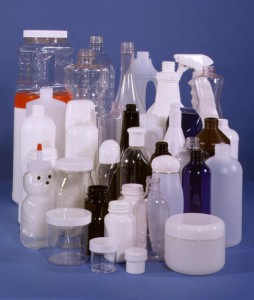Are Plastic Products Safe? Educational Webinar Reviews The Science
 Concerns about plastic safety have been growing over the years, and the media has stepped up its efforts to expose potential dangers associated with plastic compounds such as bisphenol A (BPA) and phthalates. The problem is – there is very little scientific evidence linking plastic to human harm, and no credible evidence that our current typical exposures to BPA poses any health risks at all (so say the health agencies of the United States, Canada, the European Union, and Japan). But that’s not a very exciting story, is it?
Concerns about plastic safety have been growing over the years, and the media has stepped up its efforts to expose potential dangers associated with plastic compounds such as bisphenol A (BPA) and phthalates. The problem is – there is very little scientific evidence linking plastic to human harm, and no credible evidence that our current typical exposures to BPA poses any health risks at all (so say the health agencies of the United States, Canada, the European Union, and Japan). But that’s not a very exciting story, is it?
Instead, what we often hear in the news is that microwaving our plastic containers or drinking from plastic water bottles could be dangerous to our health… and that BPA-free containers are better for baby. But where did the media come up with these ideas? I asked Dr. Chuck McKay, a toxicologist and emergency medicine physician at the University of Connecticut, to explain how safe levels of exposure (to various chemicals) are determined, and how to know if news reports are based on scientific evidence. I hope you’ll listen in to this educational Webinar.
Some of my favorite take-home messages from the Webinar include what I call “just becauses”:
1. Just because you can find a substance in your urine doesn’t mean it’s harmful. (Asparagus anyone?)
2. Just because an animal reacts to a substance, doesn’t mean that humans will. (How often have you caught a cold from your dog?)
3. Just because extreme doses of a substance can cause harm, doesn’t mean that tiny doses also cause harm. (Consider radiation exposure from riding in an airplane versus being near ground zero of a nuclear strike).
4. Just because something has a theoretical potential to harm, doesn’t mean it will. (Will you really be attacked by a shark in 2 feet of water at your local beach?)
5. Just because someone conducted a research study doesn’t mean their findings are accurate. (Do you really believe the Cosmo polls? There’s a lot of junk science out there!)
For an excellent review article of the high-quality science behind plastic safety, please check out this link. In the end, there are far more important health concerns to worry about than potential exposure to plastic compounds. And throwing out all your plastic containers may not even reduce your exposure to BPA anyway… A recent study found that people had higher concentrations of BPA in their urine when they followed a plastic-free, organic diet! Their exposure was actually traced to ground cinnamon, coriander, and cayenne pepper. Who knew?










